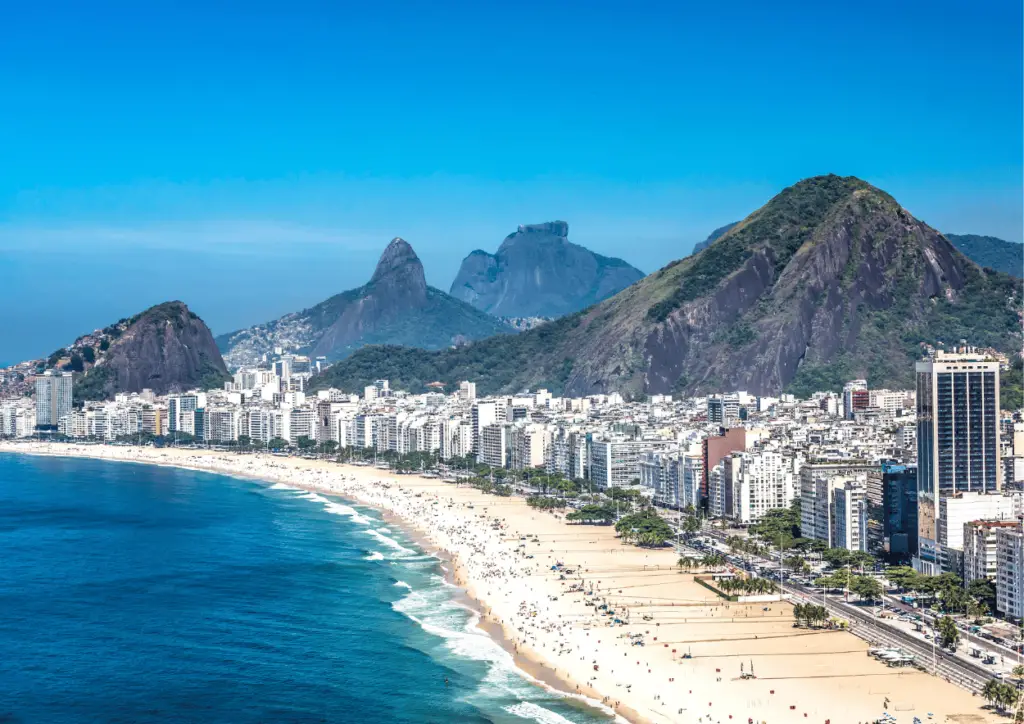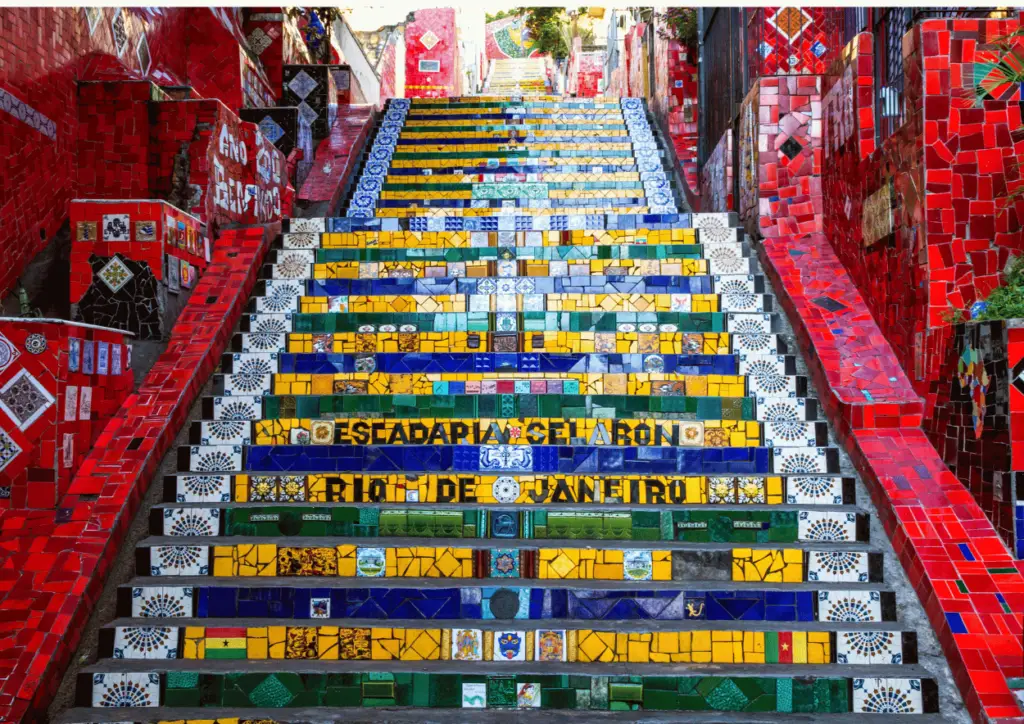Working nomads’ evolving world, where freedom and flexibility intertwine with travel and adventure. In recent years, the concept of working remotely while exploring new destinations has gained immense popularity. This modern breed of professionals has traded the traditional office cubicle for breathtaking landscapes and diverse cultures. From the tranquil beaches of Bali to the bustling streets of Rio de Janeiro, working nomads are rewriting the rules of work-life balance and embracing a lifestyle like no other.
The Rise of Working Nomads: A Historical Perspective
To truly understand the essence of working nomads, let’s delve into its origins. The roots of this movement can be traced back to the early 2000s when technological advancements and the internet paved the way for location-independent work. As more jobs became digitized, individuals began realizing the potential to work remotely while exploring the world.
Today, working nomads have redefined the traditional 9-to-5 grind by embracing a lifestyle that allows them to work from anywhere, as long as they have a reliable internet connection. This newfound freedom has given rise to a global community of like-minded individuals who share a passion for travel, exploration, and remote work.

Brazil, with its vibrant culture, picturesque landscapes, and emerging digital infrastructure, has recently become a hub for working nomads as it released its’ digital nomad visa in 2022 . The country’s rich history and natural beauty have long enticed travelers from all corners of the globe. From the sprawling Amazon rainforest to the awe-inspiring Iguazu Falls, Brazil offers a wide range of experiences for those seeking both professional and personal growth.
Remote Work Visa: Unleashing Opportunities in Brazil
If you’re considering Brazil as your next working nomad destination, understanding the remote work visa process is crucial. Brazil has introduced a digital nomad visa that grants professionals the opportunity to live and work in the country for one year, with option to extend for an additional year. To qualify, one must work remotely, provide proof of revenue and employment (minimum income of $1,500/month), and provide financial statements for funds in bank account (minimum $18,000). This visa aims to attract international talent, boost the local economy, and foster cultural exchange.
Obtaining a remote work visa in Brazil opens doors to a world of possibilities. Imagine immersing yourself in the vibrant Brazilian culture, indulging in delectable cuisine, and exploring breathtaking landscapes while maintaining your professional commitments. Like many popular digital nomad destinations, Brazil can serve as a hub for the perfect balance between work and play.
When considering where to stay in Brazil, many foreigners choose to stay in one of the country’s larger cities such as Rio de Janeiro or São Paulo. As we delve into the possibilities for working remotely in Brazil, we’ll focus on the country’s bustling city of Rio de Janeiro.
Rio de Janeiro: The “Marvelous City”
Rio de Janeiro is a vibrant city known for its stunning beaches, tropical forests, and festive atmosphere. It attracts both Brazilian and international tourists who enjoy leisure activities such as strolling along the streets and beaches in bathing suits or exploring the city by bus. Apart from its reputation as a tourist destination, Rio is also an important economic center with a wide range of industries, trade, administration, banking, education, culture, and research. The city’s character has evolved over time. It grew in prominence during the 18th century when it became the main trade center for nearby gold- and diamond-mining areas. As the national capital and royal residence of the Portuguese monarch, Rio gained a cosmopolitan atmosphere and a national character that transcended regional conflicts.

Rio de Janeiro, the cultural capital of Brazil, offers a vibrant cultural scene with theaters, concert halls, movie theaters, radio stations, and television networks. Popular attractions include the iconic Christ the Redeemer statue, Sugar Loaf Mountain, Quinta da Boa Vista park, the Botanical Garden, and Tijuca National Park. Rio’s annual Carnival, featuring the samba schools parade, attracts enthusiastic participation from locals and tourists. Football is the most popular sport, and the city’s major league teams are internationally recognized. The stunning beaches, eccentric football scene, and diverse culture add to Rio’s allure as a vibrant and dynamic destination.
The city’s climate is tropical, hot, and humid, influenced by its topography, proximity to the ocean, and the shape of the Southern Cone of South America. The temperature varies based on elevation, distance from the coast, and vegetation type, with winters being mild and pleasant and summers being hot and rainy. The annual average temperature in Rio is around 73 °F (23 °C).
Pros of Working and Living in Rio de Janeiro:
- Vibrant Cultural Hub: As mentioned above, Rio de Janeiro is known for its rich cultural heritage and vibrant atmosphere. As a working nomad, you’ll have the opportunity to immerse yourself in the city’s captivating music, dance, and art scenes. From samba performances to world-class museums, Rio de Janeiro offers a cultural experience like no other.
- Breathtaking Natural Landscapes: Nestled between lush mountains and stunning beaches, Rio de Janeiro boasts some of the most breathtaking natural landscapes in the world. Imagine taking a break from work and enjoying a swim in the crystal-clear waters of Copacabana Beach or hiking to the iconic Christ the Redeemer statue for panoramic views of the city. The city’s natural beauty serves as a constant source of inspiration and rejuvenation.
- Thriving Entrepreneurial Community: Rio de Janeiro has a thriving entrepreneurial community that fosters collaboration and innovation. Coworking spaces, networking events, and startup incubators provide opportunities for working nomads to connect with like-minded professionals and expand their professional networks. This vibrant ecosystem is conducive to personal and professional growth.
- Culinary Delights: Brazilian cuisine is a delightful fusion of flavors, influenced by African, Portuguese, and indigenous traditions. As a working nomad in Rio de Janeiro, you’ll have the chance to indulge in mouthwatering dishes such as feijoada (a traditional bean and meat stew), pão de queijo (cheese bread), and brigadeiros (chocolate truffles). Exploring the city’s culinary scene is an adventure in itself.

Cons of Working and Living in Rio de Janeiro:
- Language Barrier: The official language of Brazil is Portuguese, and while many locals may speak English, it’s still beneficial to have a basic understanding of Portuguese to navigate daily life and establish deeper connections. Learning a new language can be challenging, but it can also be a rewarding experience that opens doors to a rich cultural immersion.
- Safety Considerations: While Rio de Janeiro is a beautiful city, it’s essential to be mindful of safety precautions. Like any major city, there are areas with higher crime rates. It’s advisable to research safe neighborhoods, be vigilant, and take necessary precautions to ensure personal safety. By staying informed and exercising caution, you can minimize potential risks.
- Traffic and Infrastructure: Rio de Janeiro is known for its traffic congestion and challenging infrastructure, particularly during peak hours. Commuting to and from work, or workspaces, may require some planning and flexibility. However, the city is making efforts to improve its transportation system, including the expansion of metro lines and the implementation of dedicated bus lanes.
- High Cost of Living in Some Areas: While Rio de Janeiro overall offers an affordable cost of living compared to other major cities, certain areas, such as upscale neighborhoods like Ipanema and tourist hotspots like Copacabana, can be more expensive. It’s important to budget wisely and choose accommodations and amenities that align with your financial resources.
Despite these considerations, if you cherish a slower way of life and a lively tropical environment, the benefits of working and living in Rio de Janeiro as a working nomad can far outweigh the challenges. The city’s unique blend of culture, natural beauty, and entrepreneurial opportunities make it an enticing destination for those seeking a fulfilling work-life balance.
Cost of Living in Rio de Janeiro: Balancing Work and Life
When considering a destination as a working nomad, it’s important to factor in the cost of living. Rio de Janeiro, with its vibrant atmosphere and stunning beaches, offers an attractive balance between affordability and quality of life.
Compared to other major cities, the cost of living in Rio de Janeiro is relatively affordable. According to recent estimates, a single person can comfortably manage with approximately $1,314 (R$ 6,336) per month.
| Living in Rio de Janeiro | Average Cost ($) |
| Accommodation | $600-1,200 depending on area |
| Mobile Data | $36/month |
| Gym Membership | $30-100/month |
| Eating Out for One | $8-12 |
| Coffee | $1.87 |
| Beer | $2.07 |
In terms of affordability, Rio de Janeiro is cheaper than 63% of cities in Brazil and 54% of cities in Latin America (Expatistan). It also ranks favorably in the global context, being cheaper than 80% of cities worldwide. From housing to groceries, the expenses in Rio de Janeiro allow working nomads to enjoy a comfortable lifestyle without breaking the bank.
The city offers a wide range of accommodation options, from furnished apartments in the business district to cozy studios in more residential areas. Monthly rents vary depending on location, with furnished accommodations ranging from R$ 3,372 ($699) in a normal area to R$ 4,499 ($933) in an expensive area (Expatistan).
Basic utilities for a 2-person household, including heating, electricity, and gas, amount to approximately R$ 556 ($115) per month (Expatistan). High-speed internet is readily available, with a monthly cost of around R$ 78 ($16) (Expatistan). These affordable living expenses allow working nomads to allocate their resources wisely and enjoy the vibrant city to the fullest.
When it comes to entertainment, Rio de Janeiro offers a plethora of options. From dining out to cultural experiences, there is something for everyone. A basic dinner for two in a neighborhood pub costs around R$ 129 ($27), while two tickets to the movies come to approximately R$ 60 ($12) (Expatistan). These affordable entertainment options allow working nomads to balance their work commitments with leisure activities, creating a fulfilling work-life balance.
Embracing the Nomadic Lifestyle: Reflections on Traveling and Remote Work
As a working nomad, the ability to travel and explore new destinations is a cherished aspect of the lifestyle. The importance of finding places with good internet connectivity, a supportive community, and a balance between work and leisure cannot be overstated. To many people’s surprise, working as a digital nomad doesn’t mean you barely work. Sometimes, you’re working more hours than if you had a traditional 9-5 job. With that in mind, finding an environment that provides a balance, or a reprieve, from the fast-paced online life is super important.

Rio de Janeiro, with its bustling cityscape and captivating natural wonders, is another rising city that offers the ideal environment for working nomads. Hop over to the Tijuca National Park that provides a serene escape, allowing nomads to reconnect with nature and find inspiration outside the virtual realm. Or you can step outside to the iconic Copacabana and Ipanema beaches, where you can unwind after a productive day of work. Who knows, this may just be the dream remote work life you’ve always imagined.
If you’re exploring life as a digital nomad and are curious about aspects that have come to light during my travels, take a peek at my article “Eco Travel: The Challenge of Digital Nomadism to Communities” which discusses the impact of evolving digital nomadism to local communities.
In Conclusion: Working Nomads Paradise in Brasil
In the ever-evolving landscape of work and travel, working nomads have emerged as pioneers of a new era. By embracing remote work, exploring new destinations, and immersing themselves in diverse cultures, these digital wanderers have found a way to create a life that defies traditional boundaries.
Brazil, with its captivating landscapes, welcoming culture, and emerging digital infrastructure, has become a hotspot for working nomads. Through the remote work visa program, professionals can unlock a world of opportunities while enjoying the affordable cost of living in Rio de Janeiro.
As you embark on your journey as a working nomad, remember to cherish the moments of exploration, seek out places that offer a good work-life balance, and find inspiration in the natural wonders that surround you. Let the world be your office, and may your adventures as a working nomad be filled with meaningful connections, personal growth, and unforgettable experiences.
Safe travels and happy remote working!

